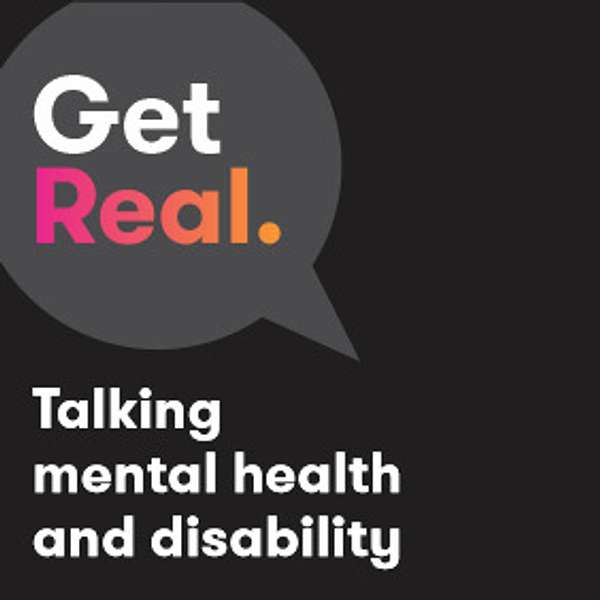
Get Real: Talking mental health & disability
Get Real presents frank and fearless conversations about mental health and disability, including people with lived experience, frontline workers in the sector, as well as policymakers and advocates. Get Real is produced and hosted by Emily Webb and co-hosted by Karenza Louis-Smith on behalf of ermha365 Complex Mental Health and Disability Services provider (https://www.ermha.org/).
Get Real: Talking mental health & disability
Episode 44: Lived Experience (Part 15) Bruce Perham – prison officers, PTSD and confronting my own trauma
In this episode of GET REAL we meet Bruce Perham, a social worker of more than 30 years who is also a family and narrative therapist. He is the director of a counselling collective called Let's Talk Differently, which specialises in the area of occupational fatigue within front-line responder professions.
Bruce’s career has mainly been in the not-for-profit sector and more than a decade ago he moved into working with first responders, in particular prison officers, around the psychological impact of their constant exposure to traumatic incidents through their occupation.
This experience and the organisational training and counselling Bruce has conducted over the years led him to write a book called Code Blue: Prison Officer in Danger.
We know through some of the conversations we’ve had on this podcast that first responders are particularly vulnerable to trauma. In Code Blue, Bruce makes the point that the work of Prison Officers and their day-to-day experiences are largely hidden, unlike the police or firefighters or ambulance officers. The public don’t see what life in prison is like or understand that prison officers are in a workplace of constant high-stress that requires vigilance at all times.
Bruce also shares with host Robyn Haydon about his own experience with trauma and mental health. When Bruce was a young social worker, he experienced anxiety and depression, triggered by a home visit he did one day at work with a mother who was in distress.
“It was just like a grenade went off...I was just trying to hold myself together...that was the beginning of something not being right,” Bruce explains.
This led to Bruce discovering that the death of his twin sister Leanne, when they were infants, had a traumatic impact on him that he never realised.
“Looking back, I see more clearly that the workplace was the stage that retriggered my childhood trauma and ostensibly had caused me so much turmoil,” Bruce says.
“It was a long time later that I realised it was that visit to that mother that really triggered back into my own mother...the level of grief in that exchange was the arrow that broke all the defences down.”
If you are affected by anything discussed in this episode, call Lifeline on 13 11 14 or go to lifeline.org.au
You can find out more about Bruce’s work and his book Code Blue: Prison Officer in
ermha365 provides mental health and disability support for people in Victoria and the Northern Territory. Find out more about our services at our website.
Helplines (Australia):
Lifeline 13 11 14
QLIFE 1800 184 527
13 YARN 13 92 76
Suicide Callback Service 1300 659 467
ermha365 acknowledges that our work in the community takes place on the Traditional Lands of many Aboriginal and Torres Strait Islander Peoples and therefore respectfully recognise their Elders, past and present, and the ongoing Custodianship of the Land and Water by all Members of these Communities.
We recognise people with lived experience who contribute to GET REAL podcast, and those who love, support and care for them. We recognise their strength, courage and unique perspective as a vital contribution so that we can learn, grow and achieve better outcomes together.
.jpg)
